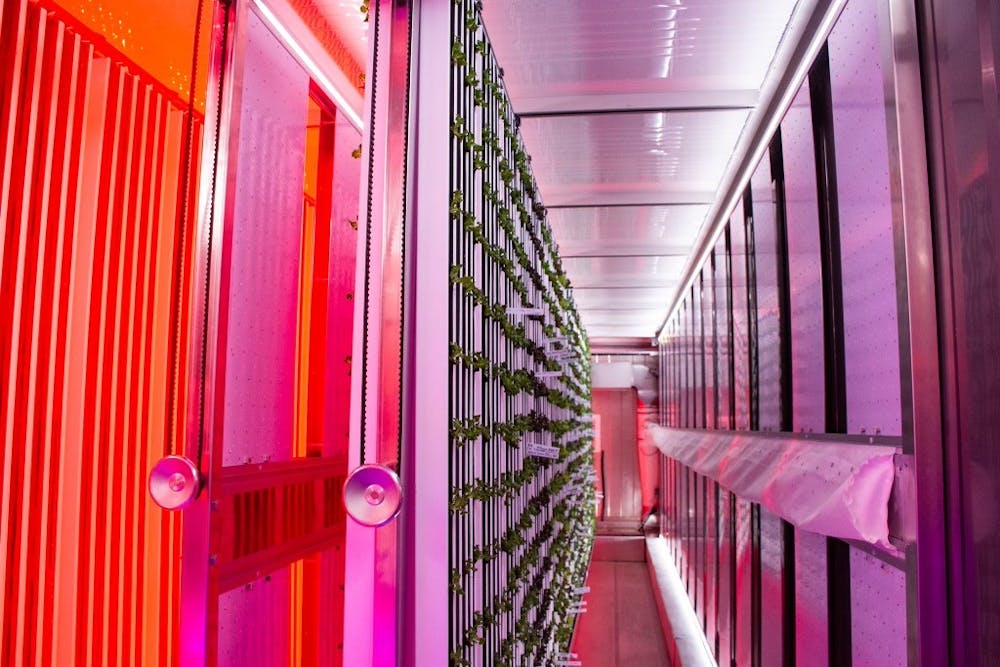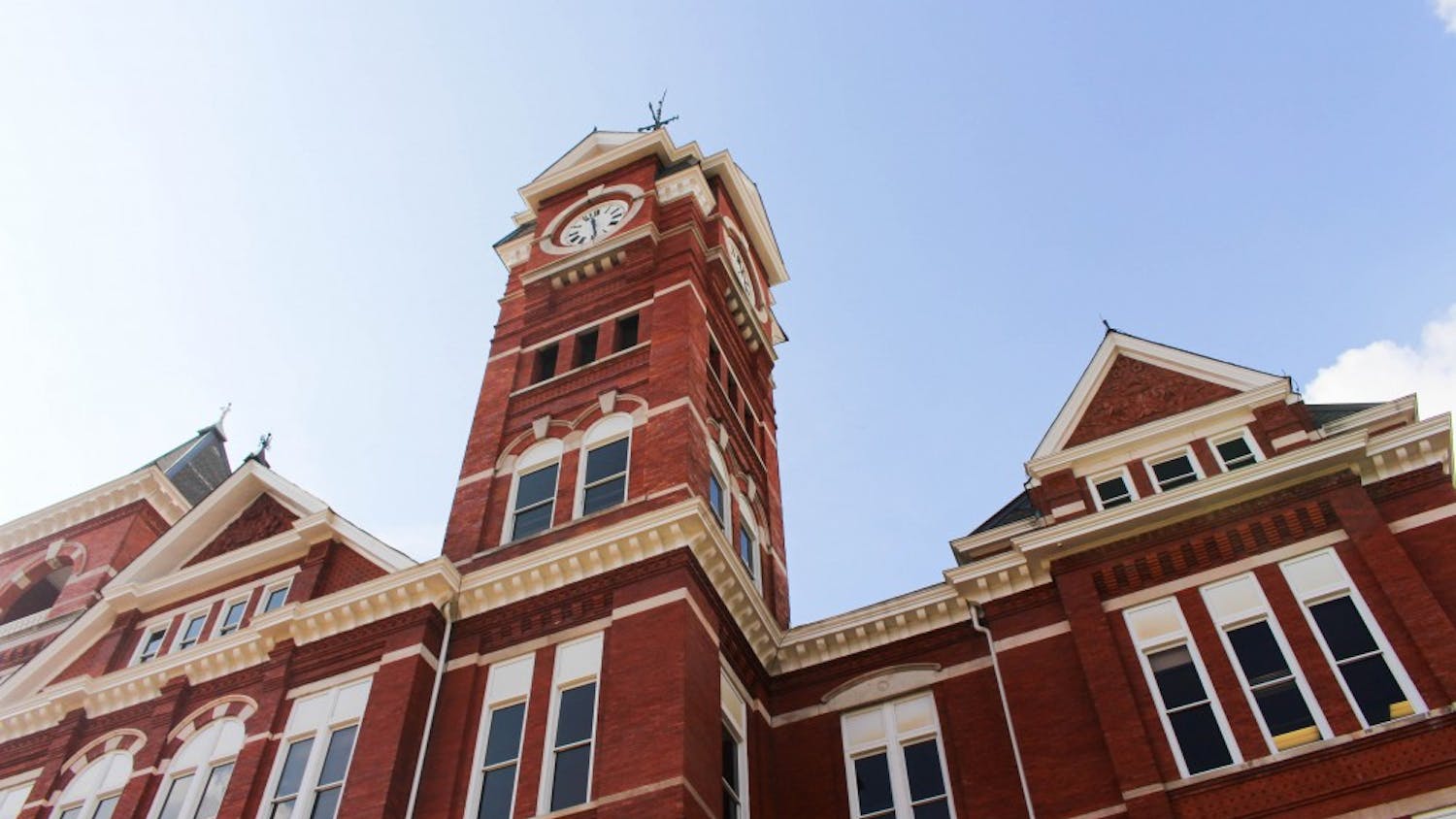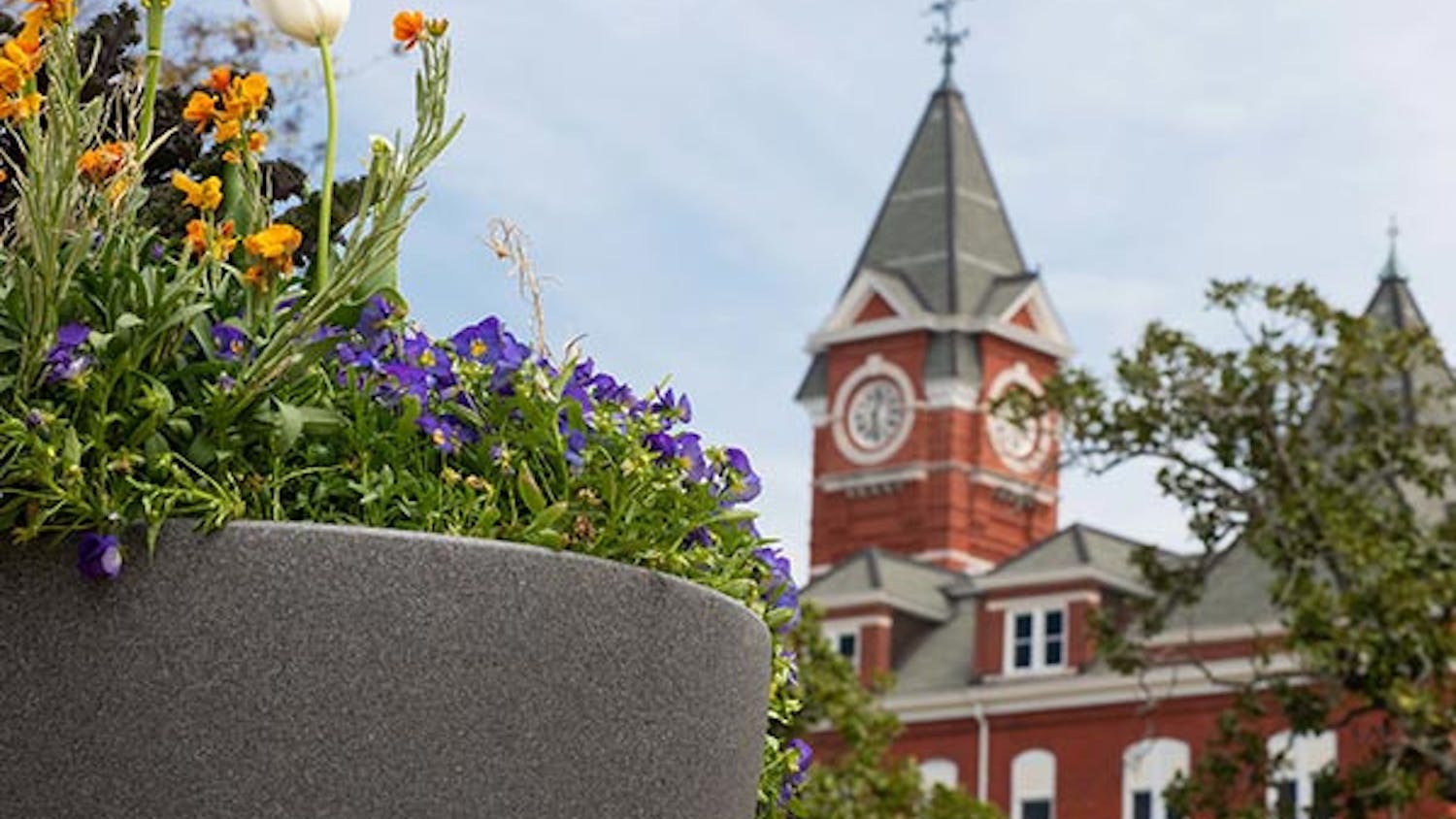AUBURN, Ala. (EETV) Students within the Auburn University school of agriculture were presented with a unique opportunity to both further their education and help promote sustainability within their school: the chance to develop Auburn’s first pair of recycled shipping containers into self-contained “vertical” farms.
The university obtained two Freight Farms shipping containers which have since been converted into technologically advanced hydroponic growing stations. In these stations, plants grow vertically indoors without the use of soil; rather, by obtaining nutrition from increased CO2 levels, water and light energy produced from LED lighting.
According to Desmond Layne, head of the Department of Horticulture, the new facility is top-tier.
“This is state of the art,” Layne Said “We’re talking growing from seed to fork in four to six weeks, depending on whether it’s lettuce, arugula or another vegetable crop that can grow in there. And we can produce 15 times as much per year as we could outside in the same exact spot.”
So how do these new vertical farms work?
Associate Professor of Horticulture Daniel Wells explains that the outfitting of the shipping containers creates an ideal environment for accelerated growth.
Each container is equipped with an intricate climate control system, allowing for changes in temperature and air humidity all while ensuring the same climate 365 days a year.
Arguably even more impressive is the intricate lighting system within each container which serves as the primary source of energy for crops.
“It turns out, for photosynthesis, plants use mostly red and blue light,” Wells said. “What’s neat about that is you can cut out a lot of the other color spectrum, creating far less heat energy. That’s very efficient; it means more of the energy used is turned into light than heat.”
The final factor in efficient plant growth: ample volumes of carbon dioxide.
“Ambient CO2, what you and I are exposed to everyday, is about 400 ppm (parts per million),” Wells said. “And that’s fine, plants can grow there. But if we boost the CO2 to 1,000 ppm, they’ll grow faster. And because we’re containing the CO2, the plants can really use it. It’s not dangerous for humans at all.”
So, why did Auburn choose to invest in vertical farming now?
Director of Dining and Concessions Glenn Loughridge explains the connection between Campus Dining and the College of Agriculture, dating back to the implementation of fish within dining halls across campus; however, mentions that 2021 presents a unique opportunity with additions to Auburn’s campus.
“We’re in the process of finishing a $26 million dining hall in the center of campus,” Loughridge said. “It has always been foremost in my mind that we would have the opportunity to feature produce grown here on campus in that dining hall. In our biggest location, our biggest asset, we want to bring our A-game.”
There are — however — other incentives for the university to continue funding for the new wave of farming.
Kyle Hensarling, a masters student in horticulture studying aquaponics and hydroponics, was provided with a chance to apply his studies in the creation of Auburn’s new vertical farms.
“Inside these containers, I had the unique opportunity to lead a small team of undergraduate students focusing in all sorts of majors relating to agriculture, biotechnologies and horticulture,” Hensarling said. “We had this unique opportunity to lead them in this new innovative technology that we use to basically ramp up food production in today's growing population world.”
Despite mentioning the ability to meet needs regarding a growing demand for food production, Hensarling mentions that these high-tech shipping containers will revolutionize how young people view farming.
“With this opportunity, the students can lead other students in the future in the horticulture department in an untraditional way of farming. So we don’t want students nowadays to think of farming as just sitting on a tractor in a field. We want them to think of these new, emerging technologies that can be used in everyday city life. You can have these in an unused warehouse that can basically feed a whole city now.”
The new vertical farms are incorporated in plans for Auburn’s 16-acre Transformation Garden located off of Lem Morrison Drive. The garden’s mission is to encompass every aspect of plant-based agriculture as well as the history of the field itself.







